Is it really time to reopen amid coronavirus? Miami business leaders take it slowly
As Jessica Goldman Srebnick contemplates reopening Wynwood Walls, the complex of murals, galleries, retail and restaurants that drove the neighborhood’s transformation, she hesitates.
Her employees and her family company, Goldman Properties, have suffered a substantial blow after shutting down most operations in March, including The Hotel in South Beach, because of the coronavirus pandemic, she said. The company furloughed all but 38 of its 260 employees.
But as Miami-Dade County, Miami and Miami Beach, among other local governments, prepare to allow some nonessential businesses to restart under an encyclopedic set of restrictions as early as Monday, Goldman says she’s unsure how far or how quickly she’s ready to move, given that the deadly virus is still spreading and the course of the outbreak remains unclear.
Like other leading developers, business owners and civic leaders in Miami-Dade, Goldman endorses a gradual approach to reopening, something her company is likely to do in phases — though none of the properties will be opening just yet. Goldman worries not just about legal liability should anyone get infected on one of her firm’s properties, but about her responsibility to ensure the well-being of employees, guests and the wider community.
“I don’t care what anyone else’s timeline looks like,” Goldman said. “I’m reopening when I think it’s going to be safe for customers and employees.”
The caution Goldman and others express underscores one concern they all share: No one wants to be the operator whose restaurant or hotel sparks a fresh outbreak. Even with the best precautions, they say, it would not take much to cause a spike in the rate of new infections, which has been flat or decreasing slightly in Miami-Dade, the epicenter of the outbreak in Florida.
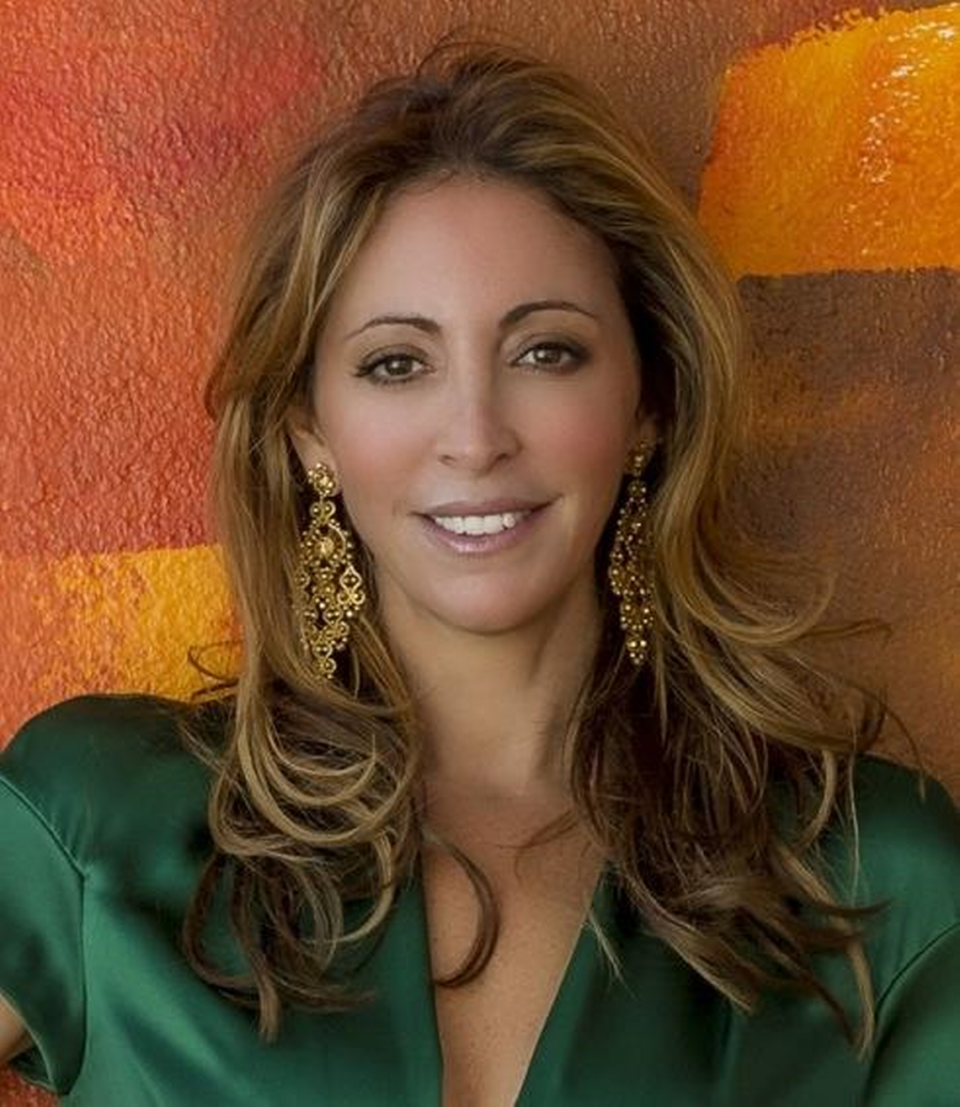
Given widespread public apprehension, business operators and owners of commercial properties say they’re uncertain how many customers will return once they do reopen. Surveys show most Americans believe it’s still too early to lift shutdown orders, while public health experts warn that most transmissions take place indoors where people are gathered.
On Tuesday, top federal infectious-disease experts, including Dr. Anthony Fauci, warned the Senate that reopening before there is a dramatic drop in new cases and far more extensive testing would result in avoidable “suffering and death,” as well as additional economic damage.
Anyone who thinks businesses will quickly ramp back up is dreaming, Goldman said. She does not expect business across Miami and the rest of the country will return to where it was before the pandemic for at least a year, or until a vaccine is developed — and even then, it may look and operate in a very different manner.
“We have to be responsible and consistent and disciplined for the next year. That will save lives,” Goldman said. “It’s going to take time for customers to feel safe enough to come back, and it’s going to take time for workers to feel confident they’re not putting their life on the line by coming back to work. Right now, nobody can make any promises.”
Armando Codina, the veteran Miami-Dade developer who built and manages Downtown Doral, an extensive main street-style collection of residential buildings, townhomes, shops and restaurants, said the county remains especially vulnerable because it’s a magnet for international travelers, who could spread new infections. That could force new lockdowns or make customers even more wary about venturing out, extending the financial pain, Codina said.
Another reason for care, he noted: Reopening rules and restrictions are likely to vary among the largest cities, which can set stricter standards that the county baseline. That could make reopening while meeting the standards a complex — and expensive — operation, especially for small businesses without corporate resources to tap.
Some small restaurants and businesses, with required reductions in capacity and added expenses to meet health and safety protocols, will not make it even after reopening, Codina said.
“Reopening a Boeing plant in Washington state is easier than reopening a restaurant in Miami,” Codina said. “It’s a very difficult balance. We need to reopen the right way and we cannot afford a spike or a rebound. If there is a spike after opening anywhere in Florida it’s going to be Dade County. We’re in a plateau. It wouldn’t take much.
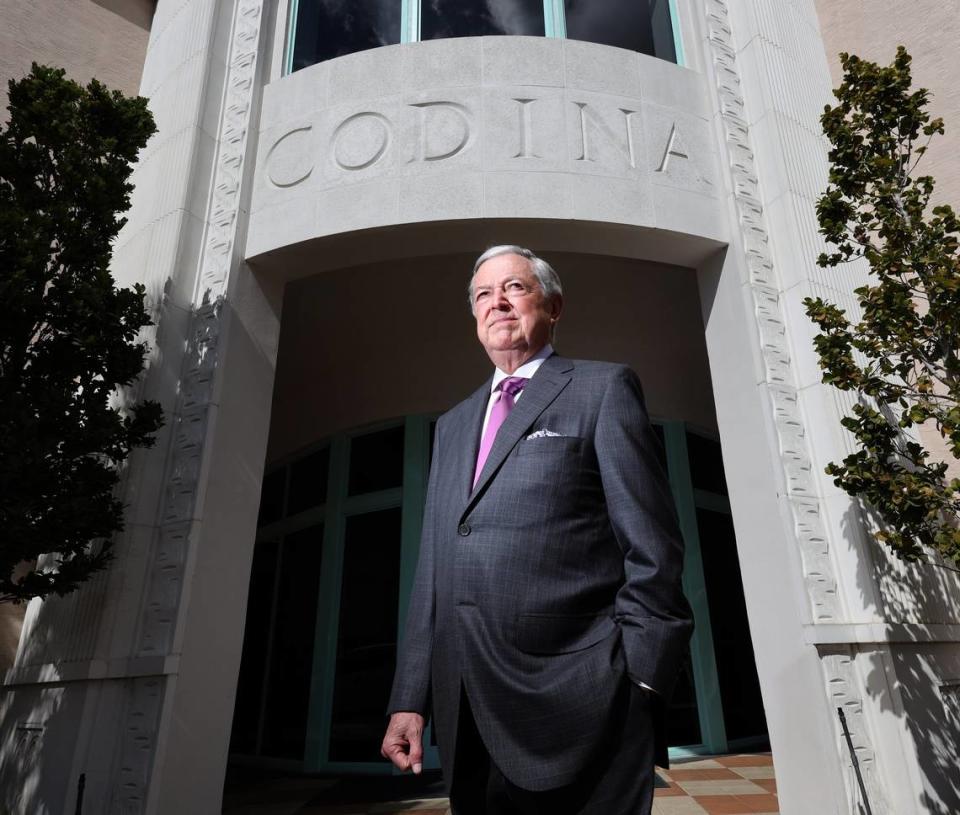
“The most important issue of all is, when are people going to feel comfortable going back to a restaurant? We have to inject confidence so people will come back.”
Miami-Dade restaurants to reopen after coronavirus shutdown. But is dining out safe?
At Downtown Doral, which hosted a news conference Thursday where Gov. Ron DeSantis gave Miami-Dade Mayor Carlos Gimenez the green light to begin lifting restrictions, all restaurants will be reopening under an extensive set of strictures established by the county, Codina said — though not all will be doing so right away, and some will be serving limited menus. Retail shops are free to open as well.
Codina is implementing some added measures on top of the county requirements, including installation of expensive microbial air-filtration at all commercial properties and voluntary Covid-19 tests for all 60 of his employees at his Coral Gables HQ once they return to the office next week. He will also make the tests available to office tenants, Codina said.
“A lot of these people needed to get back to work and the restaurants wanted to open. I’m hopeful the plan is well thought out. Hopefully we don’t have any spike, and if there a rebound, it will be manageable,” he said.
The Related Group, developer Jorge Perez’s company, is taking a conservative approach as well. Among other concrete steps it will take even after shutdown orders are lifted, said vice chairman Adolfo Henriques: Shared amenity areas in buildings it manages will remain closed until further notice; bolstered cleaning and disinfecting protocols will also remain in place
“With so much uncertainty, we hope other businesses — both in the real estate industry and beyond — take a similarly measured approach,” Henriques said in an emailed statement. “The economy must be slowly ramped up, always prioritizing long-term prosperity over short-term gains.”
For businesses, the stakes could not be higher as they make reopening plans. Wait too long, and face going out of business. Move too soon, and face financial ruin anyway and a health catastrophe to boot.
Goldman, Codina and others also worry that small business owners will feel pressure to reopen before they’re really ready and, in doing so, expose themselves, workers and customers not just to the virus but to serious legal jeopardy and possible financial ruin.
Few service businesses, restaurants or retail shops would survive being identified as a nexus of infection, said Mark Neuberger, a Miami labor-law attorney who represents employers and has been telling his clients not to rush into reopening, given the risks and unprecedented uncertainty over how a business must operate during a pandemic.
“Going back to business as usual as if nothing happened is near-insanity, both legally, morally and business-wise,” Neuberger, of Foley and Lardner in downtown Miami, said. “We’re in territory no one has ever thought of before. This is boldly going where no one has gone before.
“Just because the governor or the mayor says it’s OK doesn’t mean you won’t be sued. And once the word gets out that Mark got infected at such and such a restaurant, what do you think is going to happen to that business? What good is it for any business to reopen, and we end up back where we were on March 15? That’s the last thing any of us want.”
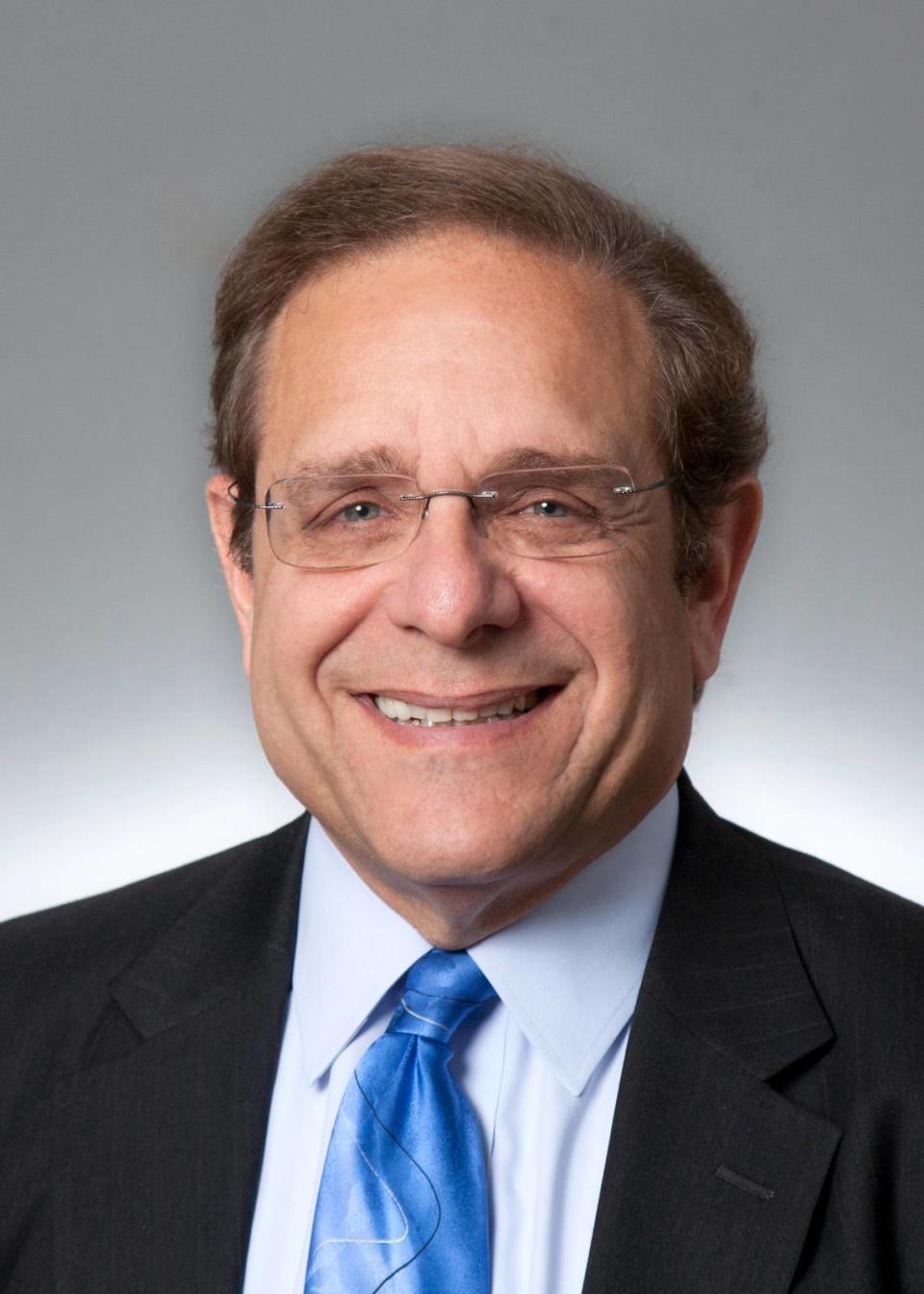
Before reopening, Neuberger notes, employers and business operators must digest and properly implement a complex set of regulations that strictly limit capacity, monitor that those are being observed, while running required wellness checks of employees at the start of every shift, keeping records to monitor for an outbreak, and protocols for shutting down quickly in cases of infection.
If they don’t follow the rules closely — and even if they do — business owners may be vulnerable to lawsuits from employees or customers in case of infection and, in the case of workers, to sanctions from the federal Occupational Safety and Health Agency, Neuberger said. Business lobbying groups have asked Congress and legislatures in Florida and other states for measures indemnifying businesses that follow official guidelines in case of virus transmission, though no action has been taken yet.
Neuberger said he believes some larger employers will start requiring workers to pass COVID-19 tests. That would previously have been barred as discriminatory under the Americans with Disabilities Act, but new guidance from the U.S. Labor Department would allow it, he said.
For businesses already struggling to stay alive, the required reopening procedures come with a potentially significant cost, including purchasing large supplies of often-expensive and hard-to-find personal protection materials like masks, gloves and certified cleaning and sanitizing supplies at the same time that restrictions on operations may keep revenue down.
The cost of re-opening should not be borne by businesses alone, argued Joe Zubizarreta, senior vice president of communications at the Greater Miami Chamber of Commerce.
“Our members are asking for federal, state, or local aid to help in the cost of preparing our businesses for this new structure being imposed on us,” he said.
Under Miami-Dade rules released last week by Gimenez, restaurants, like retail shops, would operate at 50 percent of capacity -- a level more liberal than the 25-percent state limit first imposed by DeSantis. On Friday, the governor lifted the capacity ceiling to 50 percent statewide.
Many restaurants would have been unable to reopen at 25 percent of capacity, Codina said.
At Downtown Doral, where he oversees 225,000 square feet of retail, half of it restaurant space, company managers have sprung into action to work with tenants and develop responsible reopening plans, said Ana Codina Barlick, CEO of Codina Partners and Armando Codina’s daughter. That’s been the case all along as the company sought to keep businesses alive during the shutdown.
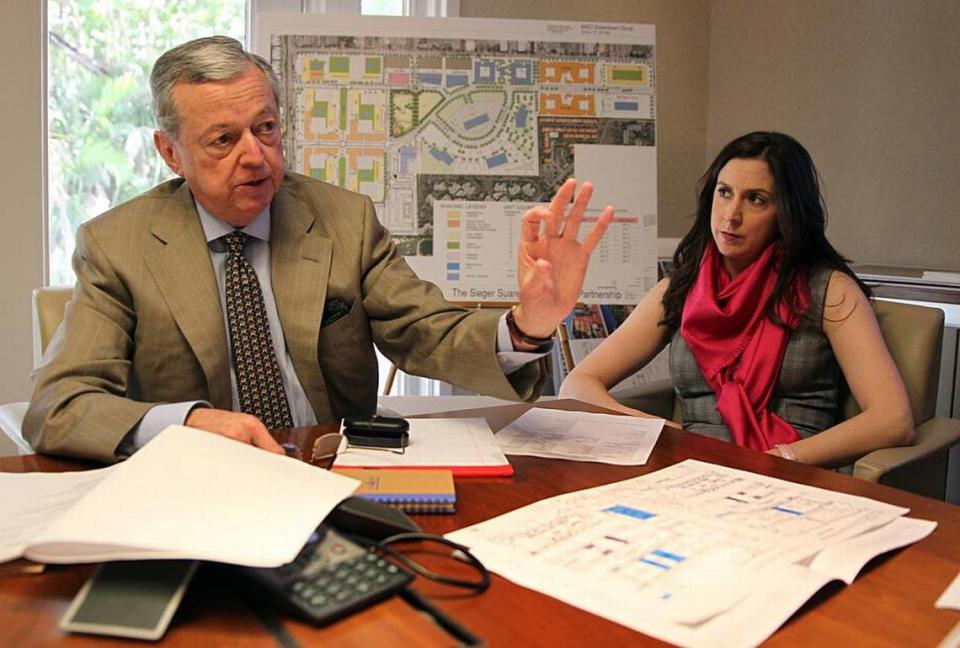
“As landlords and developers, we never stopped working and communicating with tenants,” Codina Barlick said. “We wanted to be partners — that’s always the way we see tenants. If you talk to many of our tenants, they’ll say we’re treating them like partners, trying to help pivot and keep businesses open and operating even if at reduced capacity.”
Mike Finney, president and CEO of the Miami-Dade Beacon Council, the county’s economic development organization, says the region has historically shown it can bounce back quickly from devastating economic events.
“We’re accustomed to dealing with hurricanes,” he said. While the current crisis is “unprecedented,” he said, the community “knows what takes to recover.”
“I fully expect that once we get into aggressive reopening mode, this community will be on the forefront of the comeback,” he said. “We’re a resilient community.”
Goldman said she’s in no rush to re-open Wynwood Walls, one of the most-visited attractions not just in South Florida, but the United States. Managing a crowd in the relatively confined, walled complex, both indoors and outside where the murals are, could be difficult, she said.
”I struggle. I’m not afraid to say that. I would not want to put anybody in a situation I would not want my own family in,” she said. “Wynwood Walls is a glorious place. But it attracts lots of people.”
As the company switches from weeks of what she called “crisis management” to reopening, Goldman said the company is reconsidering everything from the configuration of its exhibits and businesses to operating systems and even the skills it needs as it brings employees back.
“The skill sets of the past may not necessarily be adequate for the future. How do we open safely and maintain the trust we’ve earned over 50 years?” said Goldman, who served on Gimenez’s working group that developed reopening guidelines for restaurants. “These guidelines are going to be hard.”
She lauds the process Gimenez established as careful, thorough and unusual — with competitors who typically jealously guard business information sharing ideas and proposals.
“We have seen a lack of leadership at the federal level. You can only control what you can control. I think Mayor Gimenez has done an outstanding job. I really do,” she said. “We took it really seriously. We felt we were speaking on behalf of the small and the large, the fine dining establishment and the bakeries and the neighborhood takeout place.
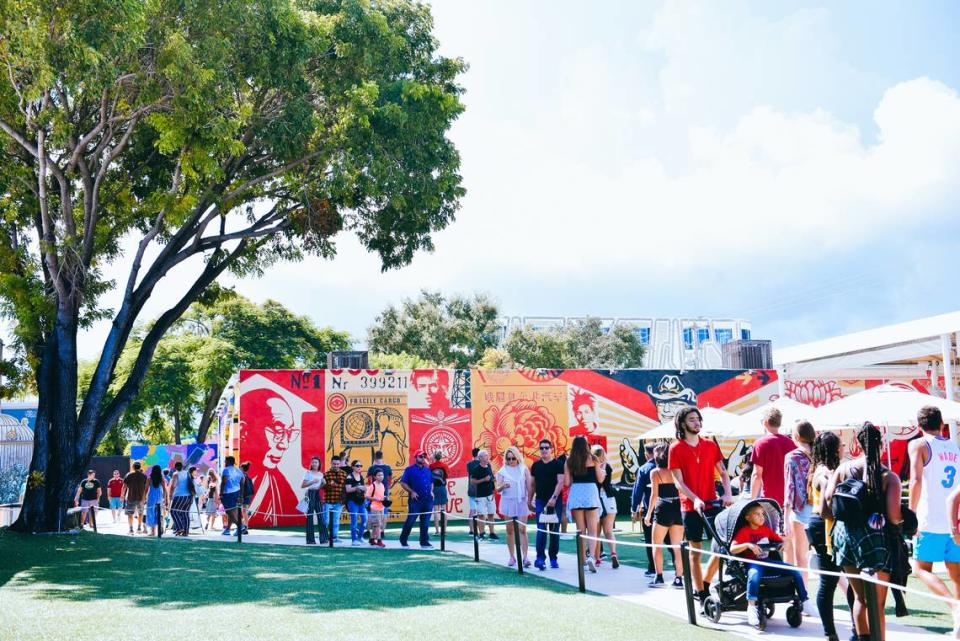
But while every business will have a set of guidelines, she said,“They have to determine how and when they can confidently open safely. It might be one week, it might be one month and it might be in September. I’ve spoken to a lot of people who can’t wait to reopen. Others say it’s going to be summer. There will be no tourists. It will look different. A lot of it is going to be dependent on your checkbook, on what you can afford.”
One thing she realized, Goldman said, is that Miami-Dade businesses and their patrons need to be prepared for a long haul. She doesn’t expect tourists to come back readily in the same numbers as before, though she thinks locals are ready to come back out. But she warns they can’t expect the same freewheeling experience as before, perhaps permanently, given the chance of successive waves of contagion or even a new infectious agent.
“We will come back. There is nothing like engaging in person. What I miss the most is human face-time. Hugs. Human interaction. That’s what Wynwood is all about,” Goldman said, but she added: “How we use space is going to change. It used to be businesses would pack as many people as they could into a space. We can’t do that anymore. I think people have been traumatized by this experience.
“I’m recognizing this is a marathon. There will be no normal until we have a vaccine. That’s going to take time. I’m a positive person. I have struggled as a leader to dig down and find the positive in all of this. This is probably one of the greatest challenges we will ever face.”

